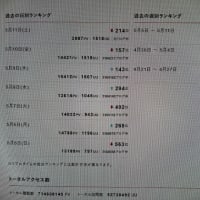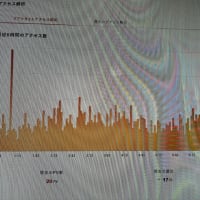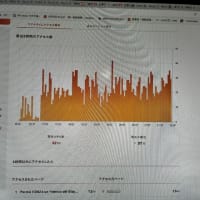The following is an article by Naoki Hyakuta published at the beginning of the monthly magazine Hanada released on the 26th, titled "The Japanese Conservative Party and Japan, the Land of Miracles'': The origins of the party declaration.
It was really troubling that it arrived on the 28th at my home, where I have a regular subscription.
The following is a continuation of the previous chapter.
Japan was the poorest country in the world.
In a normal country, we would say to the soldiers who fought in any war, "You fought well," "Thank you for your hard work," and "Please take a good rest. Please take the rest of the day off."
However, when they returned home, their homeland was no longer there to offer such words.
Everything was gone.
Tokyo was a burnt-out ruin, and air raids had destroyed entirely the urban areas.
When they returned to their parents' house, they found it burned.
Or their parents had been killed in an air raid.
The factories and companies where they had worked before the war were also gone.
To give you an idea of how bad the situation was, in May 1945, the U.S. removed Japan from its list of bombing targets.
It was almost completely burnt to the ground, and they thought it would be a waste of bombs to bomb it any further.
At the war's end, there were more than one million people without homes to shelter them from the wind and rain.
By September 1945, there were 10 million unemployed.
In addition, people were returning from overseas, but of course, they did not have jobs either.
At that time, Japan's food self-sufficiency rate was 70%.
In other words, 30% of Japan's 72 million people would have starved to death if they had only enough food to feed themselves.
Japan was the poorest country in the world at that time.
Japan was the poorest country in all of Asia and Africa.
We started from somewhere other than zero.
Japan was saddled with massive reparations and had to start from a very minus place.
When the U.S. military came to Japan as an occupying force, they saw the devastation and said, "Even after 50 years, Japan may or may not return to the standard of living it had in 1930."
A generation that lived for others
However, in 1964, less than 20 years after its defeat, Japan hosted the Tokyo Olympics and invited countries from around the world.
In the same year, Japan opened the Shinkansen bullet train, a "dream technology" that could run at speeds of 200 km/h, something that even the U.S. and the U.K. could not achieve at the time.
Around this time, Japan overtook the victorious nations of France and the United Kingdom in terms of GDP (gross domestic product) and became the second-largest economy in the world after the United States.
It is a miracle.
How was Japan able to become such a significant economic power?
As is well known, Japan produces very little in the way of resources.
As mentioned earlier, it cannot even supply its food.
Japan borrows a lot from the rest of the world to buy oil and iron.
The raw materials it buys are processed domestically, made into products, and sold to the rest of the world.
The difference between the amount imported and the amount exported is Japan's profit.
By saving and accumulating this small profit, Japan became the second-largest economy after the U.S. in just 20 years.
How hard did the Japanese people work back then?
Of course, the Japanese people as a whole worked, but who worked the most?
In fact, most of them were of the Taisho generation.
As of 1945, when the war was lost, the Taisho generation was between 20 and 24.
It was the prime of one's working life.
They were the ones who rebuilt Japan after the war.
My father's family was poor, so he went to work right after graduating from a higher elementary school.
It wasn't that my father's family was particularly poor.
The Taisho generation was like that.
After graduating from night junior high school and turning 20, they were taken into the army.
When Japan lost the war, and they returned, the companies and factories where they worked were burned to the ground.
It was not only the men who were unhappy.
Women of the Taisho generation also suffered greatly.
The loss of 2 million men means the loss of 2 million husbands, lovers, older brothers, and younger brothers.
My mother was born in 1926, so she got married late.
Many men of my generation died.
The Taisho generation is the most unfortunate in the 150-year history of Japan since the Meiji era.
But it is also the greatest generation.
They are, in a word, "the generation that lived for others."
"I was raised in Japan."
I am grateful to them every day for being born and raised in this rich Japan and being able to live happily today.
My Taisho-born parents and family raised me, but I strongly feel that the nation of Japan raised me.
Since I was born in Japan, I have wanted to do something, even if it is a small thing, or even just one thing, for Japan or society.
I want to protect the wonderful Japan that was rebuilt by that great generation and make it as rich and robust as possible.
I am now sixty-seven years old and do not have the power of the Taisho generation.
However, I believe that we should make an effort to "do it."
The Diet is pushing forward policy after policy that will destroy Japan.
If we don't do it now, in 10 years, this wonderful country of Japan will be on the verge of extinction.
If we do nothing now, we will not be able to face our fathers and uncles when we meet them in the afterlife.
I will have no face to show to my predecessors.
As a representative (provisional) of the Japan Conservative Party, I want to work together with all party members to protect Japan, the best country in the world.
That is my only desire at the moment.

















